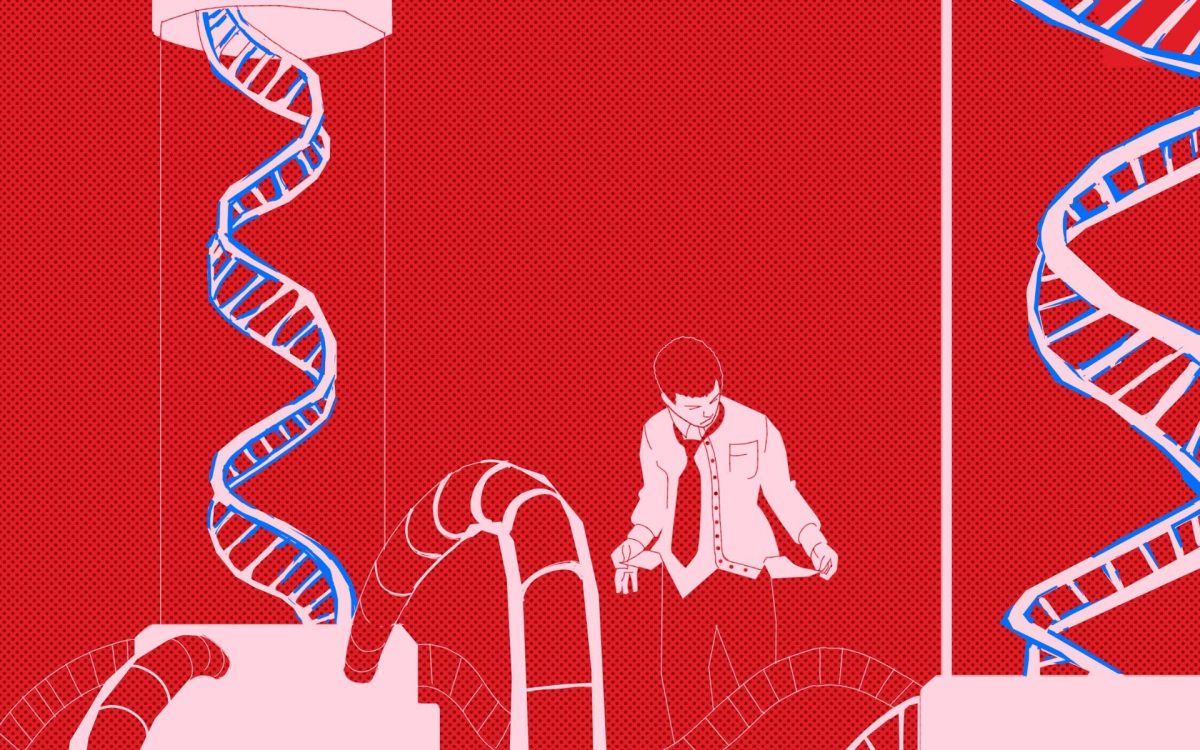Most people don’t think twice before clicking “I agree” on the terms and conditions. But what if you weren’t just handing over your email — but your DNA?
“Now I am wondering how much this fun fact is really worth,” said Olivia Bovell, a DePaul senior studying political science, who submitted a 23andMe DNA test after receiving it as a gift.
She found out that she’s part Irish — but now her DNA may be up for sale.
The popular DNA testing company filed for Chapter 11 bankruptcy in March following a major data breach in 2023 that exposed the information of around 7 million users. That gaffe led to a lawsuit and has more people questioning use of their private data overall.
Now the company’s most valuable asset — the genetic data of over 15 million users — may be transferred to Regeneron Pharmaceuticals, which is in talks to acquire 23andMe for $256 million.
While Regeneron officials say they will follow 23andMe’s existing privacy policies, those policies include a clause stating that, in the case of a bankruptcy or acquisition, “your personal information may be accessed, sold or transferred as part of that transaction.”
This means the new owner, Regeneron or not, gets the data — and the same broad rights to use it.
“The thing being sold in the bankruptcy is the raw data,” said William Gilliland, an associate professor of genetics at DePaul. “That’s what would be of interest to someone trying to acquire it.”
Gilliland noted that if the raw DNA isn’t tied to names or personal details, the privacy risk is lower. Still, he said, the lack of user awareness and intentional consent remains a concern.
For many students, reading the fine print simply wasn’t part of the process. Like Bovell, most got the test as a gift and just wanted to know their genetic origins.
Sam Taffet, a DePaul sophomore in public relations and advertising who also received the kit as a gift, said reading over terms just wasn’t a priority, even if it should have been.
“No one’s going to read that whole thing,” he said.
Dylan Dunne, a DePaul senior studying economics, also didn’t give it much thought. “I was just excited to do it,” he said. “I wasn’t focused on them having my personal data at the time.”
What feels like a fun ancestry test is also a powerful record of biological information — one that can help find distant relatives or even disease risks.
“If insurance companies knew someone had a higher risk for a condition, they might charge more or deny coverage,” Gilliland said. “That’s probably the most concerning insight.”
Bovell said she didn’t consider how results may be used — and only just found out about the bankruptcy when asked for comment for this story.
“They literally tell you not to use this information for medical advice,” she said. “So why is a pharmaceutical company buying it? That’s concerning.”
Still, Gilliland emphasized that the raw data itself is likely accurate and could be scientifically useful.
While some scientists see potential in using this kind of genetic data for large-scale research or drug development, the concern grows when personal information is sold without clear, informed consent.
Taffet said that he did receive an email about the bankruptcy but that it was lengthy and riddled with legal jargon. “That was probably intentional, to be honest,” he said.
Users can request to have their genetic data deleted through 23andMe’s website, but they should download any records they want to keep first. As students weigh whether to delete their data, some are starting to question what else they’ve handed over.
“Now I don’t even accept cookies on websites,” Dunne said.
The shift is subtle, but it’s starting to show. Younger generations are beginning to come to terms with the idea that their digital footprint extends far beyond just targeted Instagram ads.
The question isn’t just what happens to the 15 million DNA profiles in the 23andMe database but also whether this moment signals something broader — a turning point in how young people understand digital consent.
“They took advantage of a time when we didn’t know any better,” Bovell said. “Now, I think we’re waking up.”
Related Stories:
- SPARK Center debuts with environmental data-driven neighborhood project
- Tariffs have disrupted the global economy: Here’s what’s changed since Trump’s ‘Liberation Day’
- Encyclopedia DePaulia: Where Chicago gets its water
Support Student Journalism!
The DePaulia is DePaul University’s award-winning, editorially independent student newspaper. Since 1923, student journalists have produced high-quality, on-the-ground reporting that informs our campus and city.
We rely on reader support to keep doing what we do. Donations are tax deductible through DePaul's giving page.

